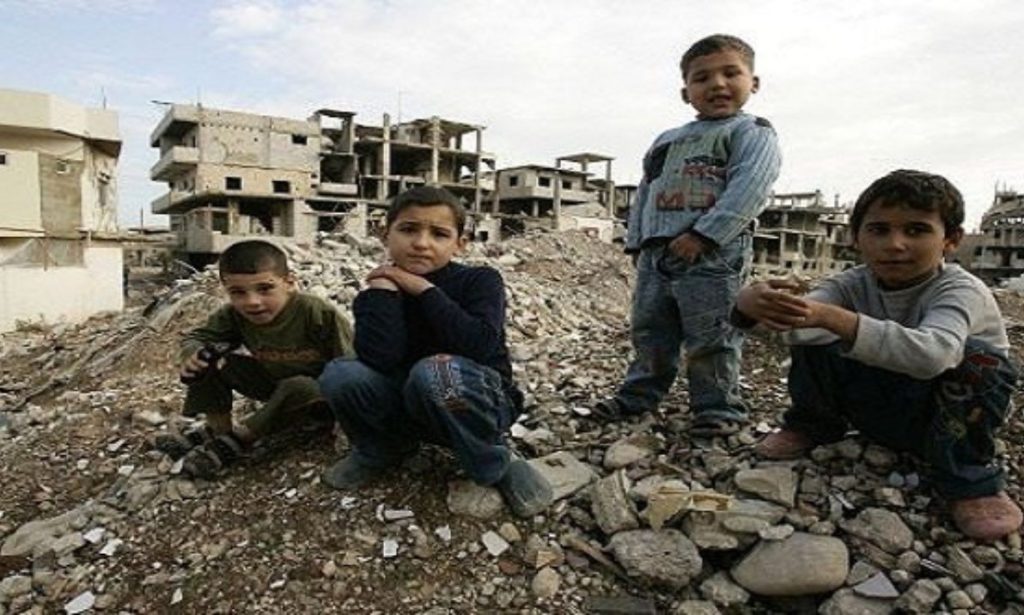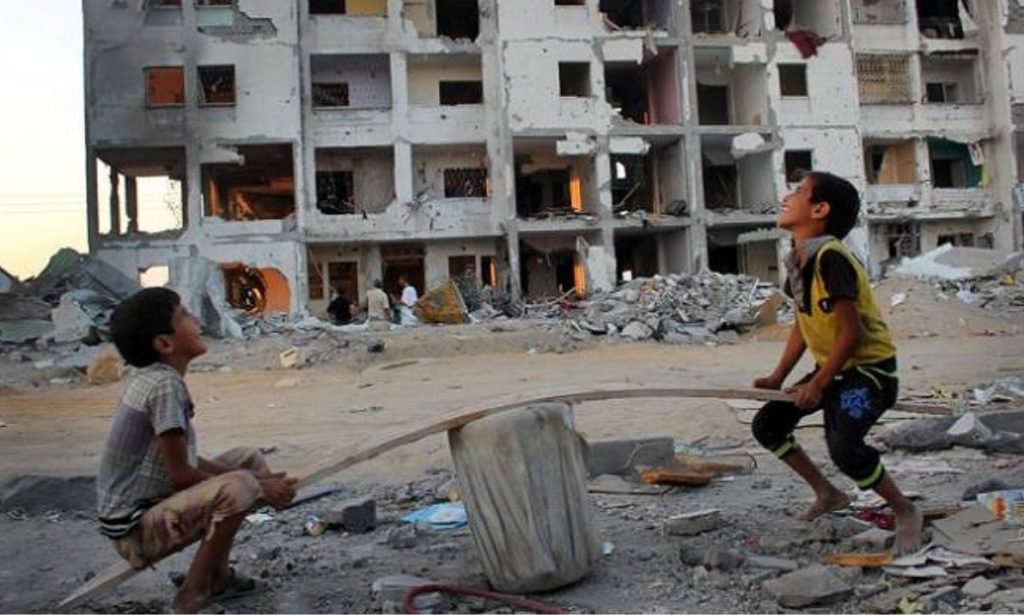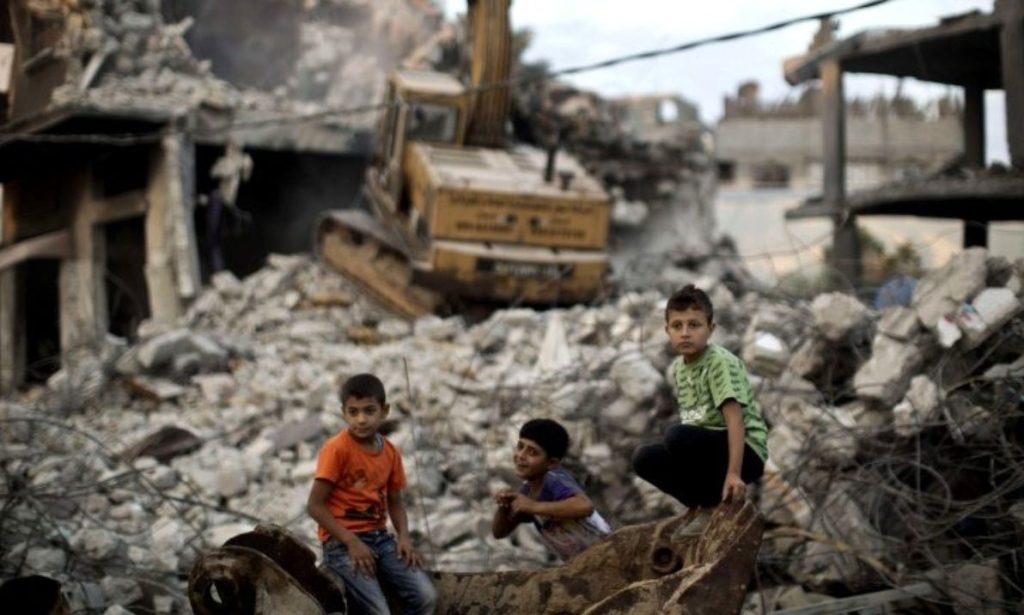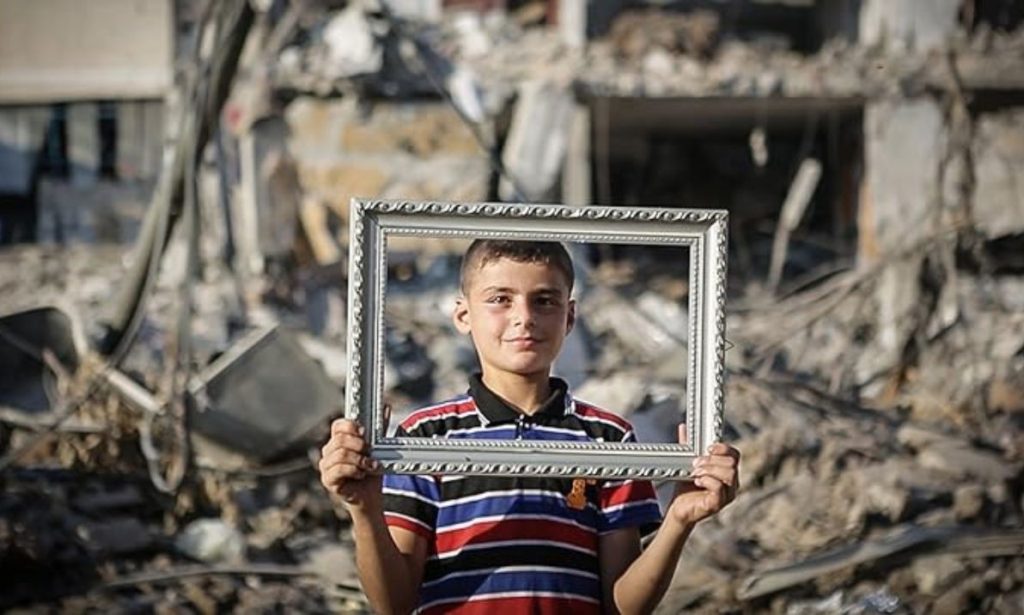The collective trauma of Gazan children is building up in the air like a cloud builds up rain, and it will soon be seen unfold, this surely is an inevitable thing.
Israel bombards Gaza, footage of residential buildings collapsing, entire neighborhoods turning into nothing but rubble. There is an immediate loss that can be depicted by the eye of journalism that of physical injury, death, and destruction of a city as tiny as Gaza. However, lurking behind this horror is another more intricate and less immediate one, that of the psyche of the Palestinian citizen, which is equally terrorized and violated. Palestinian cinema depicts this.
Herman Zin’s documentary Born in Gaza is precisely about the psyche of Palestinian children, a generation that has been completely mutilated. It’s about the recounts of 10 children barely surviving the aftermath of the Israeli siege on Gaza that lasted from July 8 until August 26, killing more than 2,251 Palestinians, among them are 551 children. Watching this documentary will make you wonder, what the war makes of these innocent children, and how it will reshape them as they grow older.

The film shifts its attention from political commentary, situated the silent and motionless camera in front of each child, only to hear them lay out the plain bitter reality of how the children in Gaza are surviving a never-ending nightmare. Contrary to the audience’s expectations, their recounts are narrated with calmness, and ease. They barely cry or shake in terror while recounting impossible war incidents of deaths and injuries.
Two of the children, Hamada and Motasem recount the day they were bombed while playing football on the beach.
’We were eight kids on the beach. We came to play football’ states Hamada, 13. Then the shelling started.
Both were wounded. ’I have shrapnel in my back, hands and legs’. But worse than the physical injuries are the psychological ones. ’I tell my mom every day I want to die,’ confesses Motasem. ’A few days ago, I tried to jump from the balcony but my sister held me.’
“My hands were covered in blood, I was holding my brother, my nephew, and my cousin’s hands. I told them to run before me… next thing I know, the three of them die in front of my eyes as they ran.”


Another of the children wounded during the siege was six-year-old Bisan. Her house was bombed, killing her parents and leaving her badly burned. She clearly suffers from PTSD. Her cousin Haia says she gets mad if anyone asks her to recount what happened.
The film interviews, Udai who with his own eyes watched his older brother blown to pieces by a bomb. ’The largest piece of him left was this size’, he says, making a small gesture with his hands.
A girl named Sondos is filmed in Al Shifaa Hospital where she receives care after she was injured in a bombing that caused all of her intestines to come out. Underwent a long surgery where her heart stopped twice. She screams from incredible pain whenever the doctors try to sterilize her wounds.
Sondos simply says “I am just a child, I don’t have bombs. I am not even a Jihadi.”
There is the tragic story of Mahmoud, whose family runs a farm that gets consistently bombed. He says that only between 2001, and 2014 the farm was destroyed 11 times. Echoing Sondos, he says ” Here we grow a farm, not bombs…they eradicate every living or unliving thing when they come here,” he says this while pointing at a dead camel.


It is normal for Gazan children to play among the rubble which was once their home. As their childhood yet unfolds, they have a collection of stories about the tragic losses of parents, of siblings, friends, their favorite toys, or of places that was once home for happy memories. The traumatized children of Gaza exist now like a silent but evasive tumor, their current alienation in nothing but a nightmarish reality, or rather their terrorization into reality can only promise a problematic future if they are not given their poetic justice.
WE SAID THIS: Don’t Miss…Is There A Guidebook To Being Israeli? A Dive Into The 2009 Global Language Dictionary



